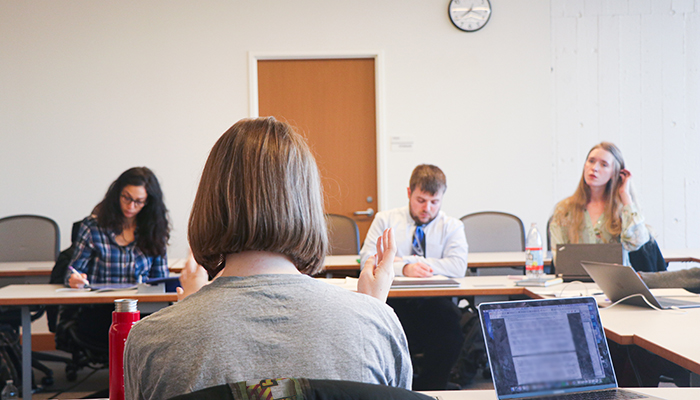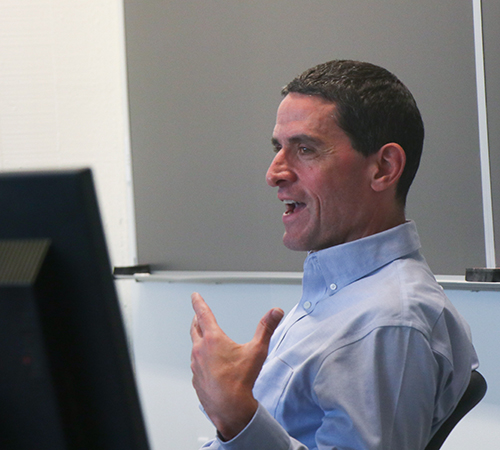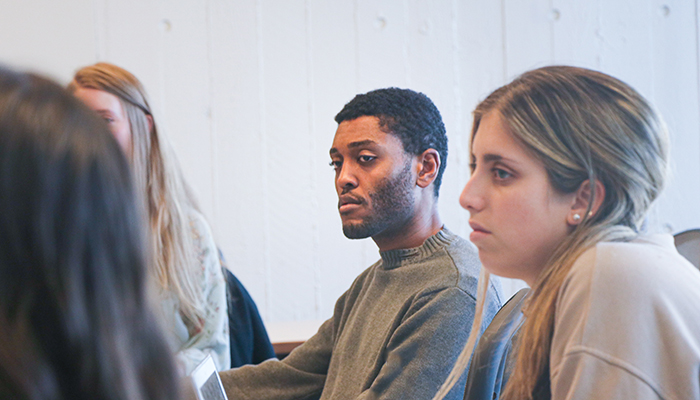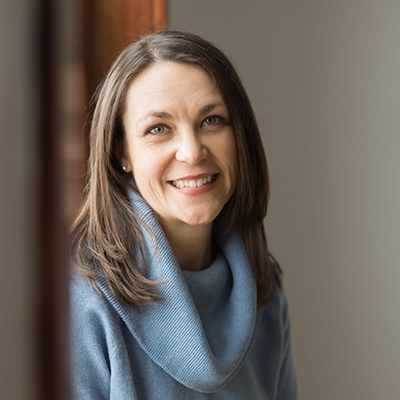Theory and Practice in the US Criminal System
BU Law students pair externships with doctrine for a broad view of the US criminal system.

Photos by Lena Otalora (COM’20)
Theory and Practice in the US Criminal System
BU Law students pair externships with doctrine for a broad view of the US criminal system.
As criminal justice reform is gaining support across the political spectrum, students in a BU Law seminar are developing a deep understanding of the US criminal system: how it developed, how it functions at local and federal levels, and what might be done to improve it.
The Criminal System: Theory and Practice is taught by longtime BU Law Professor Gerald Leonard. A constitutional historian, Leonard says he created this class several years ago because he was eager to teach about and engage in contemporary issues. This year, he added an externship requirement to the course to give students first-hand experience in the criminal system.

“We imprison people in this country at a far higher rate than almost any country in the world,” says Leonard, “and it doesn’t seem to be particularly effective. We certainly don’t have the lowest crime rate in the world.” Teaching this course—and hearing about his students’ externship experiences—has given him a broad view of the US criminal system and a better understanding of where and why it often fails.
The seminar covers various components of the US criminal system, from defense attorneys and prosecutors to police and prisons. Students read about criminal systems in other countries, giving them perspective and ideas for reform. While most law courses focus on teaching students to construct legal arguments, says Leonard, the goal of this class is to educate students about legal institutions and how they function. In particular, Leonard wants students to appreciate the ways legal institutions are shaped by external pressures, internal cultures, and limited resources.
To complete their externship requirements, Leonard’s students work in such places as the offices of the Rhode Island Public Defender, the Suffolk County District Attorney’s office, and Prisoners’ Legal Services of Massachusetts. Students often bring their externship experiences into class discussions, and that is among the most valuable aspects of the course, according to Alex Phillips (’21), who recently completed an externship in the Special Prosecutions Unit of the Suffolk County DA’s office.
“I met with classmates who were working in a public defender’s office or dealing with advocacy for the incarcerated. We all brought our perspectives together, and it was a great reality check for me—a great way of taking the blinders off,” he says.

In the Special Prosecutions Unit, Phillips worked on cases of white-collar crime, financial fraud, and public corruption. Speaking with classmates placed in other units of the DA’s office was revealing, he says. “One of the best things I learned from working in the DA’s office is that it’s not a monolithic institution,” Phillips says. “Different areas of crime have different realities attached to them. The criminal legal system as applied to narcotics is vastly different from the criminal legal system within the context of white-collar crime—and there are issues of class and race wrapped up in all of that.”
Classmate Johanna Fay (’21) had prior experience working in prosecutors’ offices, but her externship with the Federal Public Defender’s Office for the District of Massachusetts provided her first look at the other side of the courtroom. “It definitely made me question some of my own experiences and look back at them more critically,” she says. “In a lot of ways, it’s easy not to think about the individual and how this is affecting an individual’s life when you’re coming at it from the prosecution side.”
A classroom lesson that stands out for Fay is that prisons and jails “have really become a de facto mental health system in the country,” she says. Prisons are asked to deal with severe cases of mental illness and substance abuse with limited resources, she says, in settings designed for punishment, not for healing. The class discussed ways to tackle the problem, she says, and she believes reforms in policing may be the best answer.
One of the lessons Phillips takes from this seminar, he says, is that most problems within the criminal justice system are layered and complicated and won’t be fixed easily. “We didn’t get into this mess overnight,” he says. “This was the work of successive generations acting out of fear and misunderstanding, ignorance, willful malice, and racial bigotry, and getting ourselves out of it will take a very, very long time.”
But this class, he says, leaves him optimistic. “Once you understand how something works and you begin to see what something is, that goes a long way toward finding solutions.”
